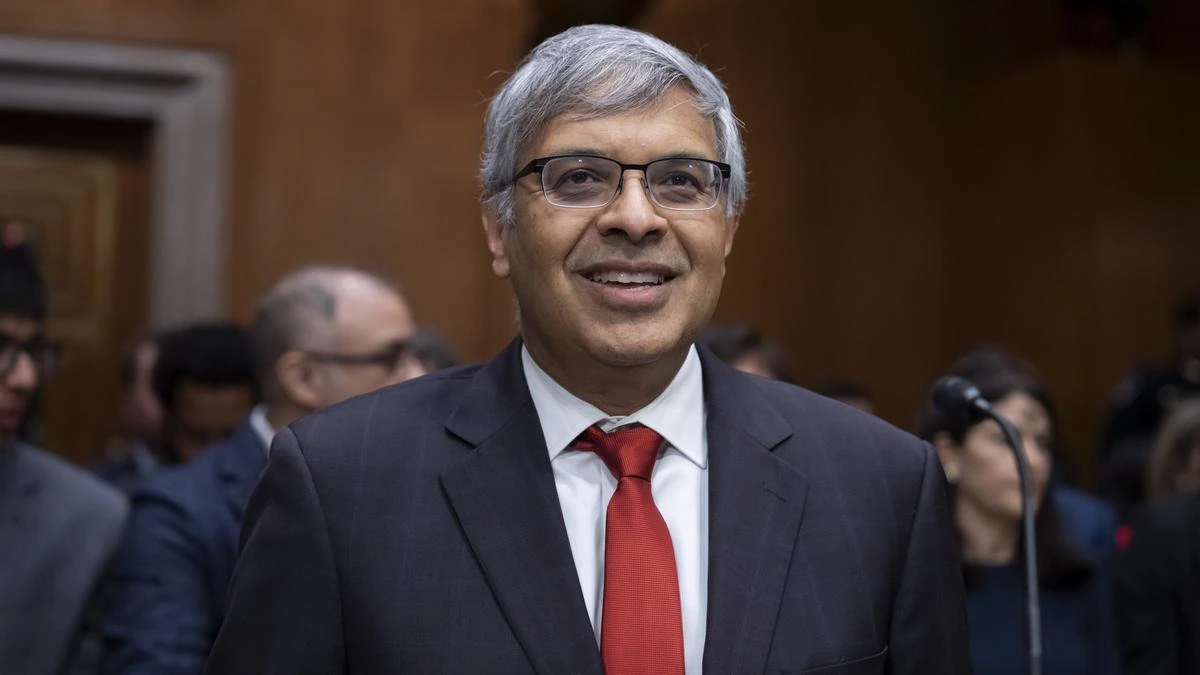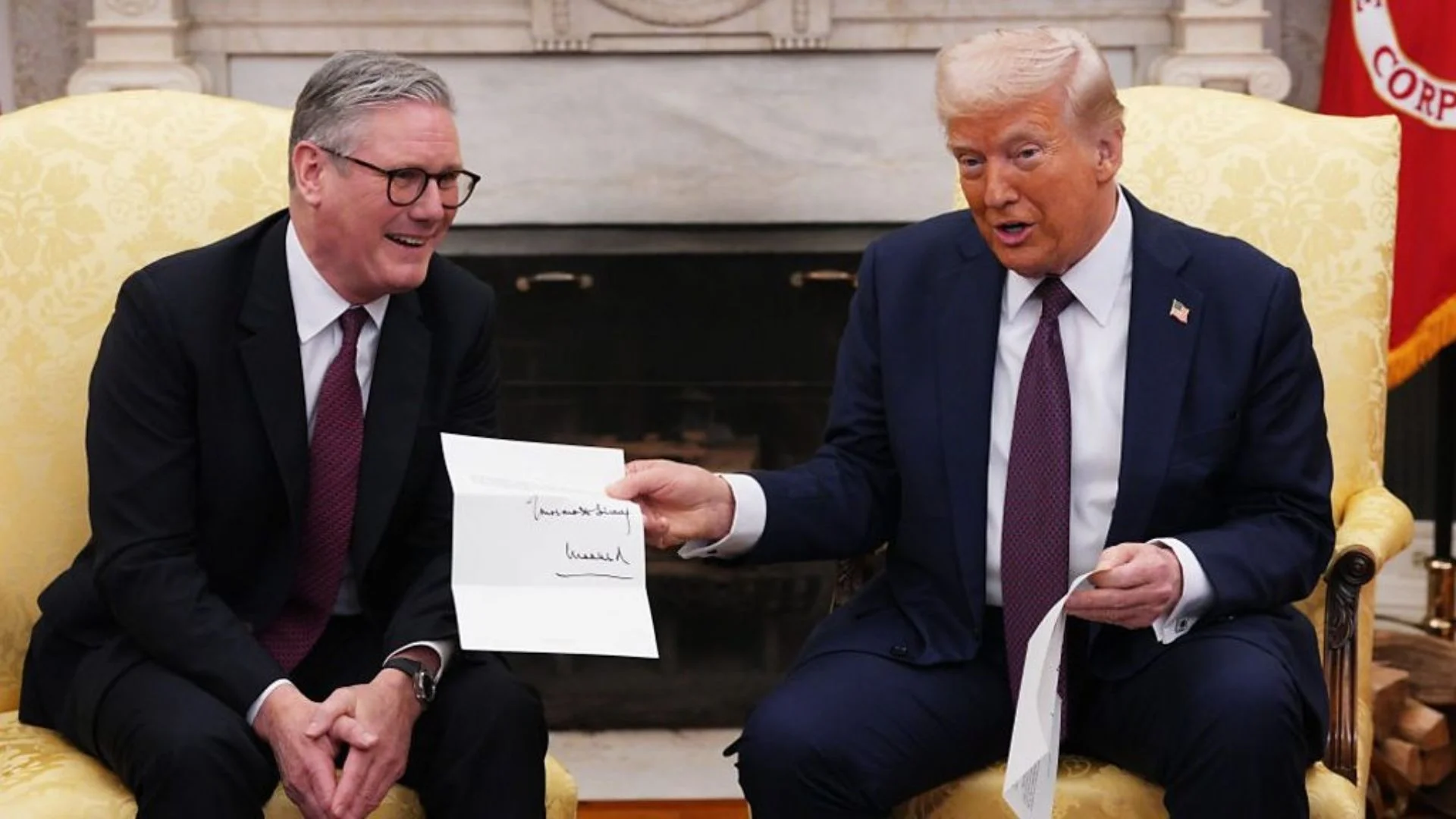On March 26, 2025, the US Senate confirmed the appointment of Indian-origin Jay Bhattacharya as the Director of the National Institutes of Health (NIH), one of the most prestigious positions in the American health sector. The vote, which took place during the first session of the roll call vote in the 119th Congress, saw a narrow margin of 53-47, with Bhattacharya securing a crucial victory. His appointment has been met with widespread attention due to his background as a health policy professor at Stanford University and his extensive experience in public health, economics, and biomedical research.
Background and Professional Journey of Jay Bhattacharya
Jay Bhattacharya’s rise to the top of one of the world’s most influential health agencies has been a result of decades of academic and research-oriented work. A professor at the renowned Stanford School of Medicine, Bhattacharya is also a research associate at the National Bureau of Economic Research. Additionally, he holds fellowships at prestigious institutions such as the Stanford Institute for Economic Policy Research, the Hoover Institution, and the Stanford Freeman Spogli Institute.
In his academic roles, Bhattacharya has made significant contributions to the study of health policy, with a particular focus on how government programs, biomedical innovation, and economic factors influence public health outcomes. He also directs Stanford’s Centre for Demography and Economics of Health and Ageing, where his research explores a wide range of topics, including aging populations, healthcare policy, and the economics of medical care.
Bhattacharya is perhaps best known for co-authoring the Great Barrington Declaration in 2020, a document that proposed an alternative to widespread lockdowns during the COVID-19 pandemic. The declaration suggested a targeted approach, focusing on protecting vulnerable populations while allowing the rest of society to continue with more normal activities. This controversial stance placed Bhattacharya at the center of debates on public health strategy, particularly regarding the balance between economic and health concerns during the pandemic.
His work has been published in various peer-reviewed journals, spanning disciplines such as economics, statistics, law, medicine, public health, and health policy. His research has garnered international attention, both for its academic rigor and for its potential to influence global health strategies.
The Role of NIH and Bhattacharya’s Vision
The National Institutes of Health is the United States’ primary federal agency for conducting and supporting medical research. With a budget running into the billions of dollars, the NIH funds medical research across a wide range of fields, from cancer to neurological diseases, and works to ensure that the US remains at the forefront of biomedical innovation.
In his new role as Director of the NIH, Jay Bhattacharya’s mission will be to oversee the nation’s health research priorities and to restore the agency to its “Gold Standard of Medical Research,” a goal that President Donald Trump outlined in his nomination statement. Bhattacharya will work closely with the newly confirmed US Secretary of Health and Human Services, Robert F. Kennedy Jr., who has been a controversial figure due to his anti-vaccine stance.
Both Bhattacharya and Kennedy will play pivotal roles in shaping the future of healthcare research in the United States, especially as the country grapples with the lasting effects of the COVID-19 pandemic and other global health challenges. Bhattacharya’s background in both economic and medical research positions him well to lead NIH in addressing the growing intersection of healthcare policy, public health, and biomedical innovation.
Reaction from the Political and Medical Community
Following the Senate’s confirmation, political leaders expressed their support for Bhattacharya’s appointment. US Republican Senator Mitch McConnell of Kentucky, in a statement on social media platform X (formerly known as Twitter), congratulated Bhattacharya, praising his background in medical research and his potential to provide “sound leadership” to the NIH. McConnell expressed confidence that Bhattacharya would steer the NIH toward becoming an even more effective institution dedicated to advancing medical science and improving public health outcomes.
McConnell’s comments reflect a broader sense of optimism about Bhattacharya’s leadership in one of the world’s most influential health agencies. As the director of the NIH, Bhattacharya will oversee a diverse array of research programs and collaborations with universities, hospitals, and pharmaceutical companies. His leadership will be critical in determining how federal funding is allocated for medical research and how the US tackles some of its most pressing health challenges, such as cancer, heart disease, and infectious diseases.
Controversies and Challenges Ahead
While Bhattacharya’s appointment has received support from many corners, it is not without controversy. His involvement in the Great Barrington Declaration has left him open to criticism, especially from public health officials who believe that his advocacy for an alternative to lockdowns put public safety at risk during the early stages of the COVID-19 pandemic. This debate continues to echo as the world reflects on the effectiveness of pandemic-related strategies.
Additionally, Bhattacharya will need to navigate the complex landscape of public health policy, which includes dealing with partisan disagreements and balancing the needs of various stakeholders, including the pharmaceutical industry, healthcare providers, and patient advocacy groups. With his background in both economics and public health, Bhattacharya is expected to bring a unique perspective to these challenges, but his tenure at NIH will undoubtedly be shaped by ongoing debates over healthcare reform and the role of government in managing public health crises.
Another potential challenge is his collaboration with Robert F. Kennedy Jr., who has gained notoriety for his anti-vaccine views. Although Kennedy’s appointment as Secretary of Health and Human Services has sparked controversy, Bhattacharya’s confirmation suggests that there may be alignment in their approaches to certain public health issues, particularly those related to government interventions and personal freedoms.
The Importance of Bhattacharya’s Appointment in a Global Context
Bhattacharya’s appointment as Director of the NIH is significant not only for the United States but also for the global health community. The NIH is a key player in global health initiatives, funding research that impacts public health policy worldwide. Bhattacharya’s expertise in health economics and policy, along with his focus on biomedical innovation, positions him as a leader who can influence not just US health policy but global medical research priorities.
As the world continues to battle with public health challenges such as emerging infectious diseases, non-communicable diseases, and aging populations, the NIH’s role in advancing medical research has never been more critical. Bhattacharya’s leadership will be key in ensuring that the NIH remains at the forefront of efforts to address these challenges and improve health outcomes on a global scale.
The confirmation of Indian-origin Jay Bhattacharya as Director of the NIH marks a significant moment in US healthcare history. With his extensive background in health policy, economics, and biomedical research, Bhattacharya brings a wealth of expertise to this prestigious position. As he works alongside other key figures like Robert F. Kennedy Jr., his leadership will shape the direction of the NIH for years to come, with the potential to influence not just US healthcare policy but global public health efforts as well.
Bhattacharya’s appointment represents a blend of academic rigor, political savvy, and a commitment to addressing complex health challenges. The coming years will be critical in determining how the NIH under his leadership tackles emerging health threats and supports the continued development of groundbreaking medical research. The world will be watching closely to see how Bhattacharya navigates the challenges of this pivotal role and works to ensure that the NIH remains a global leader in health and medical research.























